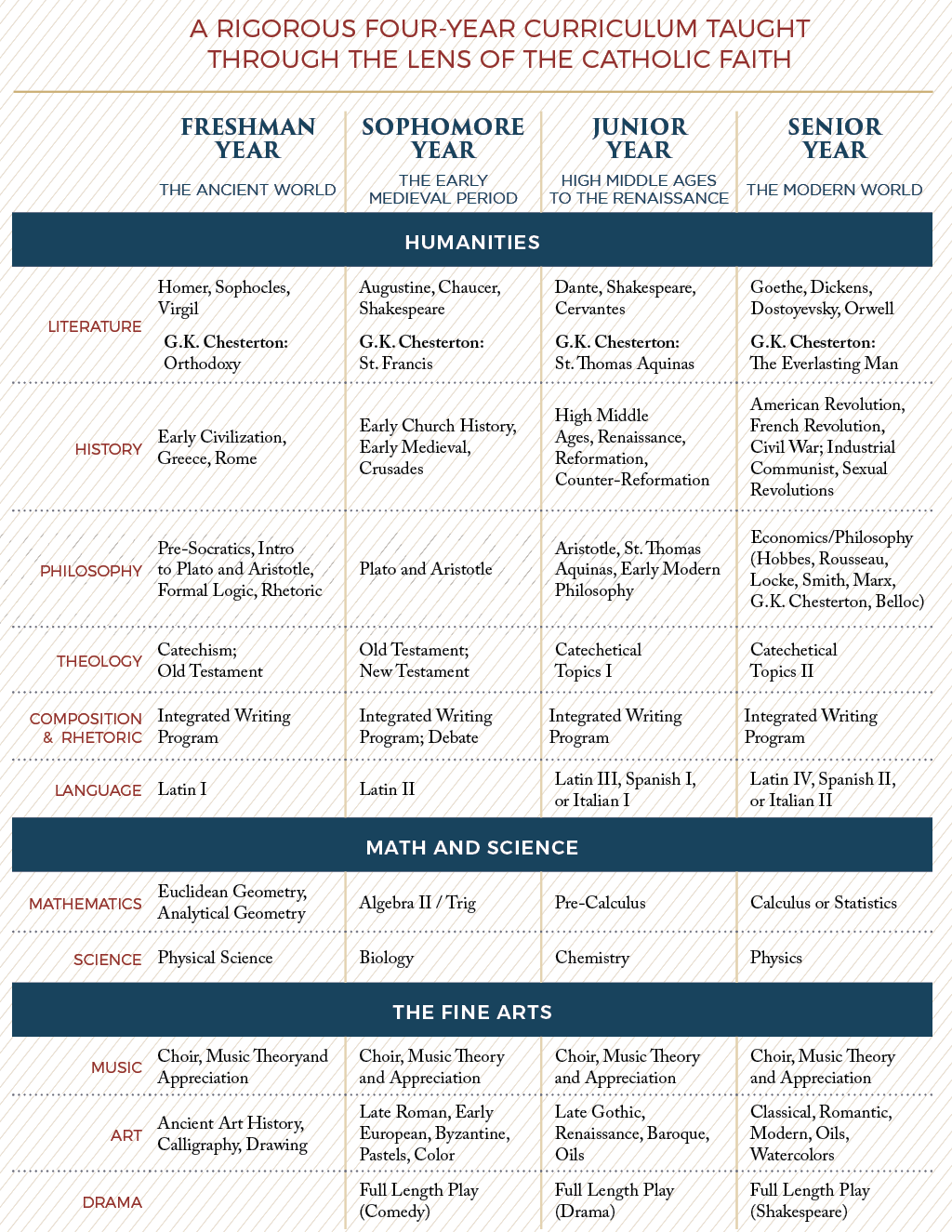Obviously, it ought to be the oldest things that are taught to the youngest people; the assured and experienced truths that are put first to the baby. But in school today the baby has to submit to a system that is younger than himself. . . Many a school boasts of having the latest ideas in education when it has not even the first idea; for the first idea is that innocence, divine as it is, may learn something from experience.
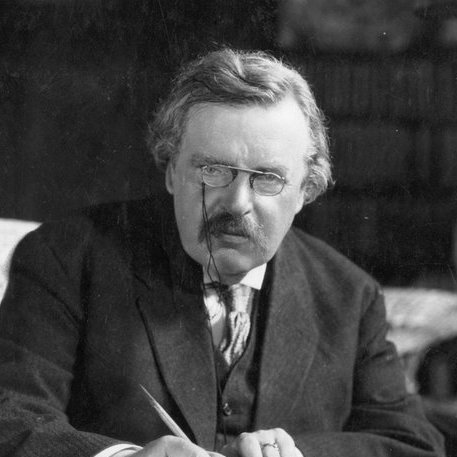
- G.K Chesterton
What's Wrong with the World (1910)
Classical Education
Our Academic Approach
Classical education teaches students how to learn and how to think, rather than just regurgitating information, training for a job, or excelling on standardized tests. It balances a focus on math and science with strong emphases on liberal arts, including literature, philosophy, Latin, and the fine arts (e.g., drama, choir, painting.) It shapes the whole person—mind, body, and soul.
Students at Chesterton Academy enjoy a broad exposure to many different disciplines, helping to expand their interests and uncover hidden talents.
Each year builds on the previous, so that by the end of senior year, our students are articulate, clear-thinking, well-rounded, and, very importantly, joyful individuals.
Great Books
Chesterton Academy classes are taught using the Great Books. Our students learn from the greatest minds in the history of civilization, including Homer, Plato, Aristotle, Augustine, Aquinas, Dante, Shakespeare, and, of course, G.K. Chesterton.
Students don't just read about those figures. They read their actual writings, out loud in class, and allow these pivotal figures to shape their minds and hearts.
Socratic Style
Most classes are taught in the "Socratic style," hearkening back to how Socrates taught his pupils in ancient Greece: through conversation. Desks are arranged in a square around the room, so the students all face one other, and the teacher leads a discussion about a book or concept rather than lecturing from a podium.
Each student is encouraged to formulate and share their opinions and defend them in dialogue, and books are read together out loud so as to appreciate the text's genius and beauty. This style keeps students active and engaged in the learning process, and also develops a confidence in expressing and defending their own thoughts.
Students learn logic and the art of respectful dialogue with humility and charity, which our future generations will need more than ever.
Minimal Technology
Chesterton Academy takes a minimalist approach to technology. We would rather our students focus on books, writing, and discussion, rather than on screens.
This aligns with a recent report from the American Academy of Pediatrics, which concluded from several studies on youth and screen time that the more children are exposed to screens, the more problems they have with "inattention, obesity, noncompliance, aggression, negative mood, creative play, and academic progress."
We're convinced our children need fewer screens, not more. Although some of our classrooms at Chesterton Academy do use projectors, and students use technology as needed for research and writing, you will not find a proliferation of iPads, phones, computer games, or unnecessary technology.
One side benefit of rejecting fancy bells-and-whistles technology in our classrooms is that we're able to operate the school at a much lower cost and keep tuition low for families.
Proven Results
Students at other Chesterton Academy high schools have fared very well on entrance exams, been accepted to top universities, and received many scholarships. Colleges and business leaders are seeking those who have received a classical education because of their solid understanding and important character traits, as well as their ability to think, reason, problem-solve, and communicate well.
The Goal
Our ultimate goal is to help students recognize the true, imitate the good, and adore the beautiful. In doing so, they will fall in love with the source of all truth, goodness, and beauty—God himself.
And that's what a saint is: someone who loves God.
We aim to produce saints.
(For more on the classical education approach, see our FAQ section.)
Humanities
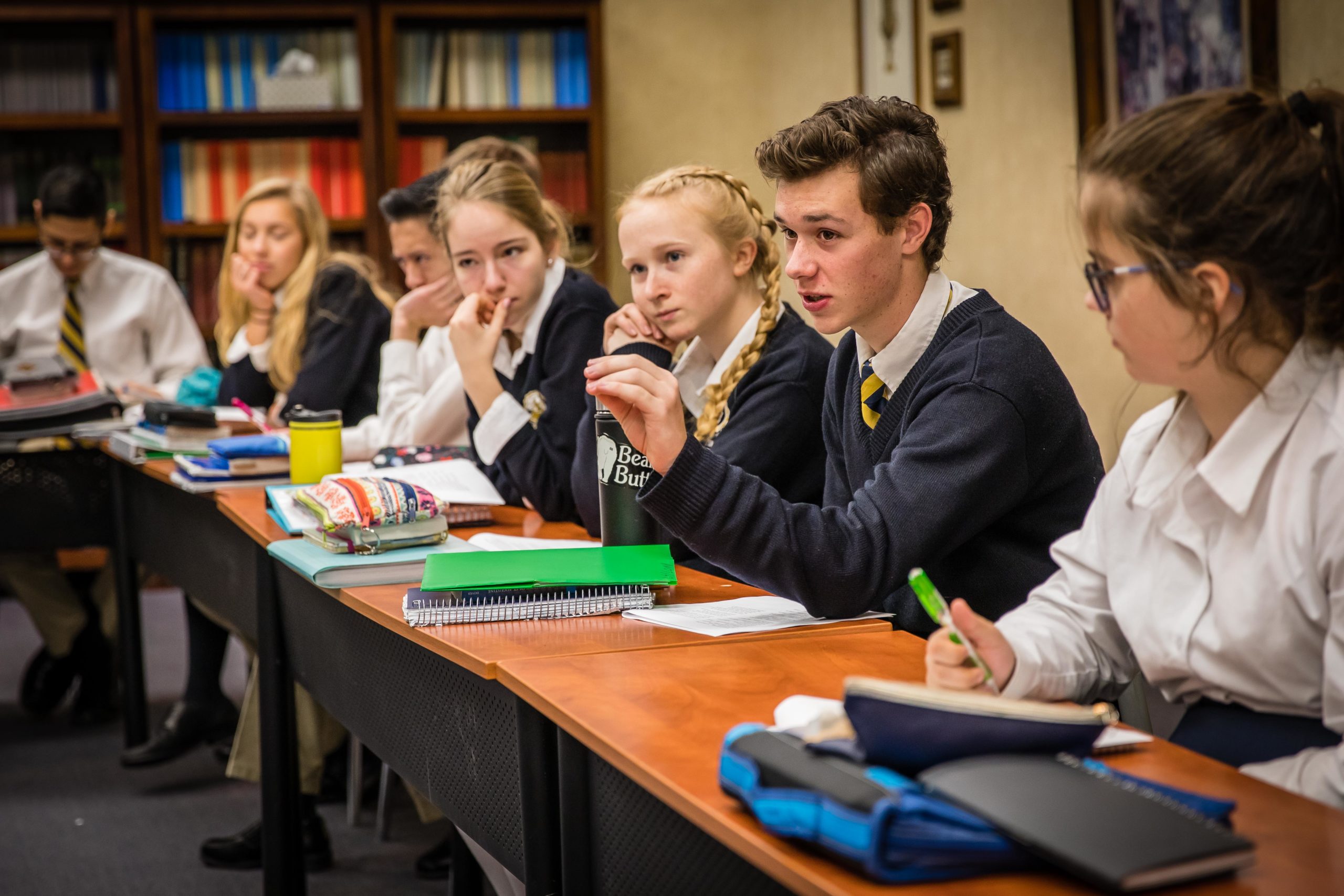
History, literature, philosophy, theology, and languages are braided together in an integrated curriculum utilizing the Socratic method.
Grade 9: Ancient World
Grade 10: Early Medieval Period
Grade 11: High Middle Ages to the Renaissance
Grade 12: Modern World
Our study of literature is tied to the study of history and the rest of the humanities. Students are first introduced to the classical epics of Homer and then exposed to early English classics such as The Canterbury Tales and literary renderings of medieval history. Moving towards the modern period, they read Dante, Shakespeare, Dickens, Dostoevsky, Chesterton, and American literature. Reading and writing go hand in hand, as each student masters the art of the essay in their writing assignments in all subjects.
The history classes at Chesterton Academy form the backbone of our curriculum. The four-year history sequence covers ancient history through the Greek and Roman civilizations, early Church history, the Middle Ages, the Renaissance, and the Reformation and Counter-reformation. In senior year, students study the modern era, including the American and French Revolutions, the Industrial Revolution, the Communist Revolution, and the Sexual Revolution. Each history course is tailored to provide a colorful backdrop for literature, art, and science classes.
Philosophy, “the love of wisdom,” exercises the brain while it elevates the soul. The ability to understand abstract concepts leads to clear and systematic thinking in all things. We use philosophy to connect the humanities, but also to show its obvious connection to logic and mathematics. We study the development of philosophy from its classical roots focusing on Plato and Aristotle, its dramatic encounter with the early Church, its christening by St. Thomas Aquinas, and its deterioration in the modern era.
Theology, “the study of God,” is the context by which all other texts are studied. The principal theological texts studied are the Bible and the Catechism of the Catholic Church. We also read selections from the Church Fathers, documents of the Church Councils, and papal encyclicals.
The study of a foreign language is required of all students for three years. All students are required to take two years of Latin and then go on to choose either Latin III, Greek, Spanish, or Italian. Because students may have already studied a foreign language before they arrive at the school we try, as much as possible, to place them in the correct level right from the start, regardless of their grade.
Math & Science
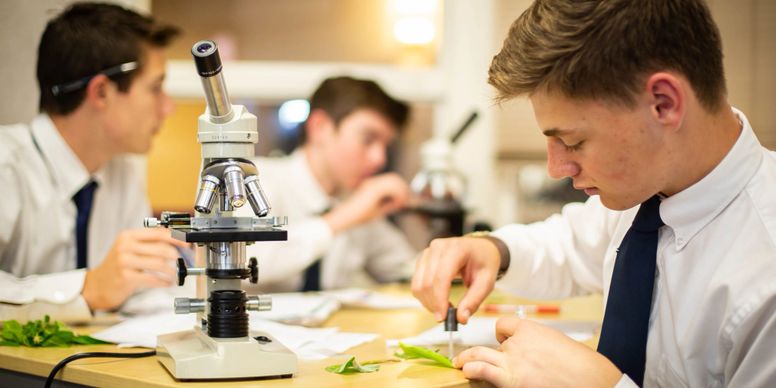
Math and science are intimately connected; the logic of math is seen in philosophy and God’s handiwork is seen in the sciences.
Mathematics is the art of measuring. Science is the study of what can be measured. While math is woven together with the sciences, it is also connected to the humanities. It teaches logic, which is a basic philosophical principle. It teaches balance, which is a basic aesthetic principle. Math at Chesterton Academy covers Euclidean geometry and algebra, all the way through advanced Calculus.
Foundations Track
Grade 9 - Euclidean/Analytical Geometry
Grade 10 - Algebra I
Grade 11 - Algebra II/Trig
Grade 12 - Pre-Calculus or Statistics
Traditional Track
Grade 9 - Euclidean/Analytical Geometry
Grade 10 - Algebra II/Trig
Grade 11 - Pre-Calculus
Grade 12 - Calculus or Statistics
C-STEM Track
Grade 9 - Euclidean/Analytical Geometry
Grade 10 - Pre-Calculus
Grade 11 - Calculus (AP Calc AB)
Grade 12 - Calculus (AP Calc BC)
Science is the study of the physical world, that is, of God’s creation. None of these subjects can be approached without a sense of wonder. It is fitting, therefore, to begin by looking up at the heavens, at the lights in the sky: Astronomy. Then we take a look at the world God created (Geology), the creatures he created (Biology), and the intricate substances of which all things are made (Chemistry). We end by gaining an understanding of the nature and properties of matter and energy (Physics).
Grade 9: Astronomy and Earth Sciences
Grade 10: Biology
Grade 11: Chemistry
Grade 12: Physics
Fine Arts
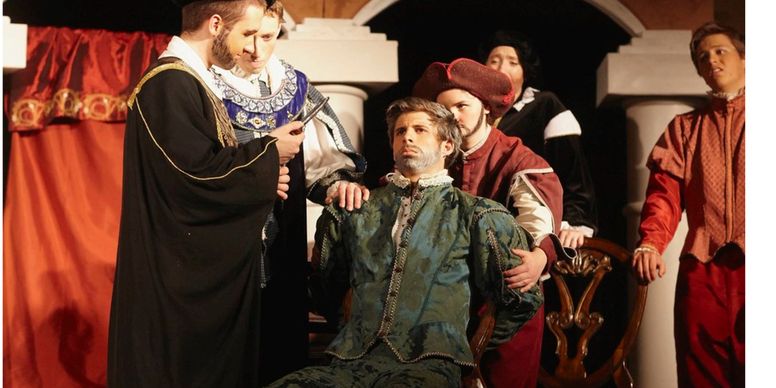
Equal emphasis is given to the arts, so that every student learns to draw and paint, sing in the choir, act on the stage, give speeches, and engage in debate.
Music appeals to the ear and the mind, the emotions and the intellect, the senses and the spirit. Chesterton Academy students are exposed to a wide variety of music that they perform chorally several times a year. An education at Chesterton includes music theory, performance, ear training, note reading, and musical analysis. Music history is taught according to the grade level with an emphasis on music development within the Church, and corresponds to the historical period in which the students are immersed. Students perform in grade-level choirs and in the all-school choir at choir concerts, Masses, and the annual Chesterton Gala.
A complete education must include the development of the creative nature and must provide students with the tools and the technique with which to express their ideas, their feelings and their love. It must also include the analytical skills with which to judge a work of art and exposure to great art. Finally, the mechanical skills and the aesthetic aptitude must be put into the proper context of eternal Truth. A good artist is a complete thinker and vice versa. The influence of the arts in today’s society cannot be overstated, and this is why art is mandatory at Chesterton Academy all four years.
Grade 9 - Ancient Art History | Drawing and Calligraphy
Grade 10 - Late Roman and Early European Art History | Pastels and Colors
Grade 11 - Late Gothic, Renaissance, and Baroque Art History | Oils
Grade 12 - Classical, Romantic, and Modern Art History | Oils
The dramatic arts are particularly powerful in our present culture where movies and the media are often the primary source of knowledge and ideas for many young people. Drama involves the study of how words are brought to life, and in order to successfully do this on stage the actor must learn to see the work as a whole, to understand the author’s vision and the time in which it was written. In other words, the actor must learn to be a good literary critic, philosopher, and historian. Drama ties together the information students learn in the classroom and asks them to actively participate in its performance.
Grade 10 - Comedy
Grade 11 - Drama
Grade 12 - Shakespeare

